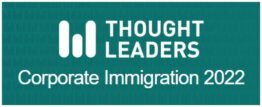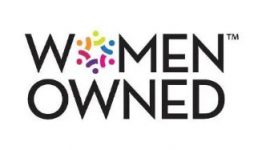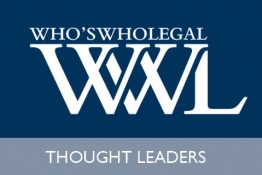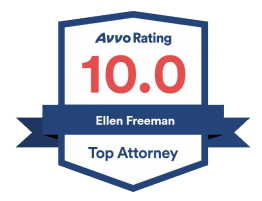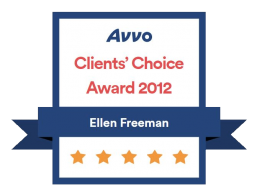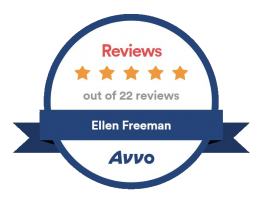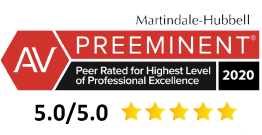The New NIW Standard Established by Matter of Dhanasar
by Dan Berger, Ellen Freeman, and Rita Sostrin
Dan Berger is a partner at Curran & Berger, LLP in Northampton, MA. He was editor-in-chief of AILA’s Immigration Options for Academics and Researchers (2005 and 2011 Eds.), and various other publications, including an American Council of Education issue brief on immigration issues for universities after the 2016 presidential election. He is an Honorary Fellow of the American Academy of Adoption Attorneys, Regulatory Practice Coordinator for NAFSA: Association of International Educators, and a co-founder of the US Alliance for International Entrepreneurs (usaie.org). He can be contacted at [email protected].
Ellen Freeman is partner-in-charge of Porter Wright’s Pittsburgh office. With 18 years of practice in all aspects of employment- based immigration, she works with organizations and individuals – primarily in biotech, health care and education – on immigration law, strategy, compliance, and training. Ms. Freeman also advises start-up and foreign companies/investors in corporate entity formation and the establishment of U.S. operations. In addition, she advises U.S. permanent residents throughout temporary assignments abroad, complex family issues, and the citizenship process. Currently, Ms. Freeman serves on Law360’s Immigration Editorial Advisory Board and is both Chair of the Fundamentals Track for the 2018 AILA Annual Conference and Chair of the Consular Liaison Committee of the Global Migration Section. She is a frequent speaker at global, national, and regional immigration conferences, and has written or been featured in numerous articles on immigration in notable business and trade publications. Ms. Freeman provides pro bono services for numerous international performing/entertaining groups, individual artists and orchestras. She earned her J.D. and master’s degrees in international affairs from the University of Pittsburgh and holds a master’s degree in Russian. Ms. Freeman is Martindale-Hubbell AV peer review rated and listed in Who’s Who in corporate immigration.
Rita Sostrin is a partner at Sostrin Immigration Lawyers, LLP, in Los Angeles. She focuses her practice on immigration of individuals of extraordinary abilities, including artists, entertainers, academics and physicians. She is a regular speaker and writer on advanced immigration law topics. Ms. Sostrin is a member of AILA’s Arts, Culture, Entertainment & Science Committee, senior editor of Immigration Practice Pointers, and former chair of AILA’s California Service Center Liaison Committee. In 2008, she was honored by AILA’s President’s Commendation for her outstanding contributions. She is included in The International Who’s Who of Corporate Immigration Lawyers, Chambers USA, Best Lawyers in America and U.S. News & World Report Best Lawyers.Our panel will focus on the important changes that the late 2016 AAO precedent case Matter of Dhanasar brings to representing clients seeking national interest waivers (NIWs). We offer practical tips on meeting new evidentiary standards, and provide guidance on how to prepare successful NIW petitions under the new framework.
***********
MAKING YOUR CASE GIVEN THE DHANASAR CRITERIA
On December 27, 2016, in Matter of Dhanasar, 26 I&N Dec. 884 (AAO 2016), the USCIS Administrative Appeals Office (AAO) announced a new analytical framework for determining whether a foreign national pursuing employment-based permanent residence in the EB- 2 1category as a member of the professions holding an advanced degree or as an individual of exceptional ability in the sciences, arts, or business is eligible for a discretionary waiver of the job offer and labor certification requirements in the U.S. national interest – a “National Interest Waiver” (NIW).2
According to Dhanasar,3 the third prong of NYSDOT4 (various versions: “that the national interest would be adversely affected if a labor certification were required,” that beneficiary “present[s] a national benefit so great as to outweigh the national interest inherent in the labor certification process,” beneficiary will “serve the national interest to a substantially greater degree than would an available U.S. worker having the same minimum qualifications,” or “ the alien’s past record justifies projections of future benefit to the national interest”) has generated confusion and needed to be revised. NYSDOT required showing of a “past history of demonstrable achievement with some degree of influence on the field as a whole,” yet Dhanasar concluded that past achievements are not necessarily the best or only predictor of future success.
Dhanasar’s new three-prong test looks at the facts holistically: the first prong – endeavor has substantial merit and national importance – reviews the field; the second prong – individual is well positioned to advance the endeavor – reviewed the beneficiary; and the third prong – beneficial to the U.S. to waive the job offer and labor certification requirement – reviews the national interest.
Under the new test, in order to be granted an NIW, an EB-2 petitioner – either the foreign national or an employer – must meet all of the following criteria, under the preponderance of evidence standard:
- The foreign national’s proposed endeavor has both substantial merit and national importance. A wide range of fields of endeavor may qualify, including business, entrepreneurialism, science, technology, culture, health, and
- The foreign national is well-positioned to advance the proposed endeavor. To determine whether the foreign national meets this requirement, USCIS will look to his or her education, skills, knowledge and record of success in related or similar efforts, a model or plan for future activities, progress toward achieving the endeavor, and the interest of potential customers, users, investors or other relevant entities or
- On balance, it would be beneficial to the U.S. to waive the job offer and labor certification requirements of the EB-2 category. To meet this requirement, USCIS will consider (among other factors) whether the U.S. would benefit from the foreign national’s contributions even if qualified U.S. workers are otherwise available, and whether the national interest of the foreign national’s contributions is sufficiently urgent to warrant foregoing the labor certification process.
The AAO stated that the petitioner must also show that a favorable exercise of discretion is warranted. In addition, the beneficiary must qualify as a member of the professions holding an advanced degree or as an individual of exceptional ability in the sciences, arts, or business.5
“NATIONAL IMPORTANCE” VS. “NATIONAL SCOPE” CRITERIA
The Dhanasar decision made NIWs more broadly available to foreign nationals pursuing endeavors that would benefit the United States, including entrepreneurs and the self-employed. Matter of Dhanasar vacates the framework set forth in In Re New York State Dept. of Transportation (NYSDOT).6 Under the NYSDOT standard, in determining whether a foreign national is deserving of a waiver of labor certification, the Immigration Service looked at several factors and determined whether:
- It has been shown that the alien seeks employment in an area of substantial intrinsic merit;
- It has been shown that the proposed benefit of the foreign national’s work will be national in scope;
- The petitioner seeking the waiver has persuasively demonstrated that the national interest would be adversely affected if a labor certification were required for him or her. The petitioner must demonstrate that it would be contrary to the national interest to potentially deprive the prospective employer of the services of the alien by making available to U.S. workers the position sought by the
A foreign national seeking an exemption from the labor certification process had to present a national benefit so great as to outweigh the national interest inherent in the labor certification process. The petitioner (whether the U.S. employer or the foreign national) had to establish that he or she will serve the national interest to a substantially greater degree than would an available
- worker having the same minimum qualifications. The legacy INS found that Congress intended to grant national interest waivers on the basis of the overall importance of a given profession, rather than on the merits of the individual foreign national as they relate to the job to be performed. The benefit which the foreign national presents to his or her field of endeavor will greatly exceed the “achievements and significant contributions” contemplated in the regulation. It clearly must be established that the foreign national’s past record justifies projections of future benefit to the national interest.
Dhanasar moved away from the geographic importance of “national in scope” to a specific endeavor that the foreign national proposes to undertake. The USCIS no longer evaluates the prospective impact of foreign national’s solely in geographic terms. Instead, the USCIS evaluates the importance of the problems one tackles which could be important on a local level. To determine whether the proposed endeavor has national importance, the AAO considers the potential prospective impact of the foreign national’s undertaking. Using same information, one can prove substantial merit associated with his or her endeavor.
WELL POSITIONED TO ADVANCE THE PROPOSED ENDEAVOR
Dhanasar gives the following examples of demonstrating a beneficiary’s strong position to advance their proposed endeavor:
- Education, skills, knowledge and record of success;
- Model or plan for future activities;
- Progress towards achieving the proposed endeavor;
- Interest of potential customers, users, investors,
Dhanasar recognizes that some innovative endeavors that are in the national interest may fail, and does not require petitioners to demonstrate that their proposed endeavors will be successful. They must, however, demonstrate that they are well positioned to advance the proposed endeavor. This is similar to the EB-1A requirement of demonstrating the intention to continue work in the area of “extraordinary ability,” which could include a statement from the beneficiary detailing professional plans.7
A reliable way to demonstrate professional plans is through a business plan, particularly for self- sponsored petitioners. As such, either a professionally prepared business plan with financial projections, or a detailed statement with market analysis could be a helpful tool to meet this prong.
We can also look for guidance at the regulations governing the J-1 waiver program, where an exchange visitor’s two-year foreign residence requirement8 can be waived through a recommendation by the Department of Health and Human Services because of the nature of the applicant’s research. One of the requirements is that the applicant be able to make original and significant contributions and possess outstanding qualifications, training and experience beyond the usually expected accomplishments at their education level.9
Lastly, for those beneficiaries who are already required to demonstrate “exceptional abilities” instead of the advanced degree,10 this evidence would certainly go toward establishing that they are well positioned to advance their field. Helpful evidence could include expert testimony, work with government agencies or work on federally funded research projects, confirmation of professional leadership positions, record of publications, citation history, speaking engagements, media appearances, etc.
Clearly, to be well positioned to advance their field of endeavor, a beneficiary must demonstrate an impressive level of accomplishment, unique skills, innovative ideas, and a specific plan for implementation of those ideas.
ON BALANCE, IT IS BENEFICIAL TO THE U.S. TO WAIVE A JOB OFFER AND LABOR CERTIFICATION REQUIREMENT
Congress created the national interest waiver precisely in order to address the limitations of the labor certification process. When a foreign national provides unique and substantial benefits to an entire field of endeavor above and beyond what could reasonably be expected as part of his or her “job,” they should not be excluded from permanent residence on the grounds that another individual is “minimally qualified” to perform the “job,” in the narrowest sense of performing competent work for the sole benefit of a single employer.
According to Dhanasar, an adjudicator is to conduct a balancing test by weighing the national interest of requiring job offers/labor certifications to protect domestic workers against other national interest factors that a foreign national beneficiary brings to the table. Factors to be evaluated could include:
- The impracticability of obtaining a job offer/labor certification, given the beneficiary’s qualifications or proposed endeavor (e.g., beneficiary is a self-employed entrepreneur, or beneficiary has unique skills not easily articulated in a labor certification);
- The U.S. would benefit from the beneficiary’s contributions, even if U.S. workers are available;
- The national interest in the beneficiary’s contributions is “sufficiently urgent” to necessitate foregoing a labor
Unlike in NYSDOT, this prong does not require showing harm to the national interest, or a comparison to U.S. workers in the field, thus allowing beneficiaries to focus on the benefits they bring rather than the harm of losing them. In recent AAO decisions, USCIS has focused on the “sufficiently urgent” language, so this may be an area for practitioners to explore.
To successfully meet the balancing test, unique and exceptional qualifications of the beneficiary should be highlighted to show that, because of these qualifications, the beneficiary should not be regarded as competing with U.S. workers. Rather, he or she is in a class of their own, and putting them through the labor certification process, or requiring them to have a job offer (in the case of an entrepreneur or an exceptional foreign national seeking to self-sponsor) would make the job they are performing no longer viable because of stringent DOL requirements.
Foreign nationals who present a significant benefit to their field of endeavor create a paradox that cannot be solved by the labor certification process. While the labor certification process normally serves the national interest by protecting American jobs, it is precisely in the case of individuals who present a significant benefit to their field of endeavor, that the national interest would not be served by a blind adherence to the “minimally qualified” standard of the labor certification process.
ADJUDICATION TRENDS AND CASE PREPARATION TIPS
As of the writing of this piece in early fall, 2017, the extremely long backlogs of NIW case are starting to clear. They were running close to a year for an initial adjudication in 2016, and USCIS stopped processing cases for training post-Dhanasar until about May 2017. 2016 cases are being worked, and new filings are being considered in under six months.
We note that of all case types processed by USCIS, NIWs have been particularly volatile since 1990 when the category was created. There have been times when NIWs seem to sail through with largely favorable outcomes in just a couple of months, and other times where the bar seems unreasonably high and case processing runs close to a year. The inherent flexibility and vagueness of the NIW category provides opportunities for creativity in advocacy for clients, but it can also lead to uncertainty in USCIS decisions. Dhanasar is being applied, and seems to be a positive development, but we caution that with the new Administration and time and more AAO decisions, the NIW category could continue its historic pattern of ups and downs.
One excellent way to follow the NIW category is to read AAO cases, which are available on the USCIS website at WWW.USCIS.GOV/LAWS/ADMIN- DECISIONS?TOPIC_ID=1&NEWDIR=B5+-
+MEMBERS+OF+THE+PROFESSIONS+HOLDING+ADVANCED+DEGREES+OR+ALIEN S+OF+EXCEPTIONAL+ABILITY.
Since Dhansar was decided in December, 2016, there have not been many AAO cases, but a review of those posted show relatively positive treatment of these cases at the appeals level. In particular, previous cases tended to emphasize citation counts and traditional academic activities. More recently, leadership roles in projects seems to be valued, sometimes just as much as
citation count or publication record. See the attached chart showing highlighting some 2017 AAO decisions.
The AAO cases also suggest that providing a business plan for an entrepreneur, and a resume for most cases is valuable. Some practitioners will leave out the resume because it can be misinterpreted. USCIS officers have been known to focus on minor, unimpressive points on the resume to issue an RFE. If a resume is to be submitted, it should be edited to highlight and reinforce the key arguments in the NIW petition.
NIW FOR ENTREPRENEURS
In 2014, USCIS announced a plan to re-evaluate existing immigration categories to try to make them more accessible to entrepreneurs.11 Dhanasar seems to be an outgrowth of that effort. With the seeming demise of the entrepreneur parole rule, Dhanasar could be a particularly good tool for helping international entrepreneurs who do not fit neatly into an existing temporary visa category.12
In particular, Dhanasar supports businesspeople by:
- Allowing use of the applicant’s degrees and experience. This benefits highly educated entrepreneurs.
- Permitting teaching as evidence. For example, an entrepreneur who also teaches in his or her field will now get a boost in the NIW
- Clarifying that benefit to the U.S. interest can be local, such as helping to create jobs in a depressed area or creating a specialized local product. Entrepreneurs can argue the impact of their work on the economy, starting regionally, and then adding national supply chain implications if
- Noting specifically that entrepreneurial work can lead to an NIW. This has been on the USCIS website for a couple of years, but now it in case law. The decision notes that “evidence that the endeavor has significant potential to employ US workers or has other substantial positive economic effects… may well be understood to have national importance.”
- Clarifying that the entrepreneurial venture does not need to succeed to be valuable: “many innovations and entrepreneurial endeavors may ultimately fail, in whole or in part, despite an intelligent plan and competent execution. We do not, therefore, require petitioners to demonstrate that their endeavors are more likely than not to ultimately succeed.” The business just needs to be “well positioned to advance the proposed endeavor.” This stresses the importance of a high quality business plan for entrepreneur NIW cases.
CONCLUSION
As always, NIWs are a chance for creativity in showing a foreign national’s talents. It is an exercise in marketing within the guidelines of evolving case law.
AAO cases on NIW post-Dhanasar
| Citation | Field | Quotes |
| Matter of E-C- H-, ID# 77734
(AAO Dec. 27, 2016) |
Self-employed consultant, specifically for veteran services. | This petitioner submitted a business plan for his proposed company, including types of services, fee structures, marketing strategies, an operating budget, financial statements, and a list of potential clients.
“Based on his intention to start a consultancy firm through which he will be self-employed, it would be impractical for him to obtain a labor certification. The record demonstrates the immense value in improving programs and assisting organizations that provide support and advocacy tor U.S. veterans and wounded warriors. Furthermore, the Petitioner has a past record of success . . . and he has shown that several organizations in the field are eager to make use of his services as a consultant.” |
| Matter of E-A-A-
, ID# 77902 (AAO Dec. 27, 2016) |
Cancer staging instructor, intent on pursuing a surgical oncology fellowship. | “The Petitioner submitted his resume, documentation of his published and presented work, peer review activities, medical training credentials, along with reference letters discussing his work in the field, and evidencing his leadership in developing cancer staging tools. The record also includes evidence that the Petitioner is being recruited for fellowship positions at several leading hospitals . . .”
“Experts . . . testified to their use of the Petitioner’s work in their own clinical practice and research.” |
| Matter of F-E-,
ID# 46885 (AAO Mar. 20, 2017) |
Metallurgical engineer with intent to develop mining projects. | This petitioner had very few citations but submitted letters attesting to his leadership role in large-scale industrial projects.
“While a strong citation history can be useful in establishing the influence or significance of an individual’s work within the broader field, the evidence in the aggregate supports the Petitioner’s affirmation that his past work has found practical application in industry settings, rendering him well positioned to advance the proposed endeavor. The submitted letters describe with specificity how his work has been |
| used by his employer who relies upon him to manage multi-million dollar projects at the [redacted] in North America, as well as how his work has impacted other independent mining companies. Thus, the significance of his leadership role in research projects and, most importantly, his track record managing large scale mining projects, position him well to continue to advance his proposed endeavor of developing and implementing sustainable
mining techniques.” |
||
| Matter of R-T-I-
ID# 77341 (AAO Mar. 27, 2017) |
Chemical engineer developing clean energy technology for a non- profit. | “His experience developing and improving clean energy and biofuels processes, his record of proven innovation, and his ability to use creative thinking to solve technical and multifaceted problems in the energy sector could not be easily articulated on an application for labor certification because such requirements are not customarily required for
the occupation of a chemical engineer.” |
| Matter of K-H-S-
, ID# 532240 (AAO June 7, 2017) |
Postdoctoral researcher studying the
cardiovascular medicine. |
“Several of these individuals testify that they have modified their protocols based upon his research and publications. Overall, the Petitioner has demonstrated through his scholarship, innovative methodologies, and record of high citations, that he has a record of success and progress in his field, and that his work has attracted the sustained interest of relevant parties at a level that renders him well positioned to advance his proposed endeavor of researching molecular treatments for cardiovascular disease. He notes that the Petitioner’s work has been adopted by
researchers around the globe and that it has ‘mass cross disciplinary applicability.’” |
| Matter of T-U- O-A-, ID# 77945
(AAO Dec. 29, 2016) |
Software engineer who is developing tools for managing Big Data in the sciences. | The Petitioner submitted several reference letters attesting to the Beneficiary’s leadership role in various projects.
“As detailed above, the significance of the Beneficiary’s past projects in the field is corroborated by documentation of praise for his work and published articles reflecting widespread utilization of the [redacted] in the scientific community. The Beneficiary’s experience and expertise in his field, his record |
| of success . . . and his significant role as lead software engineer for the [redacted] project, which has received ongoing funding from [redacted], position him well to advance his
proposed endeavor. |
1. 8 CFR §204.5(k)(4).
2. See generally an excellent discussion of Dhanasar at “Matter of Dhanasar: AAO Vacates NYSDOT and Provides a “New Analytical Framework” for National Interest Waiver Petitions,” Bender’s Immigr. Bull. (Feb. 15, 2017). For a review of pre-Dhanasar adjudications, see Kludt, Angel and Camire, Recent Trends in National Interest Waiver
Cases, 18 Bender’s Immigration Bulletin 741-8 (June 15, 2013). Also available at http://curranberger.com/wp- content/uploads/2017/07/NIWcases.pdf.
3. 26 I&N Dec. 884 (AAO 2016).
4. 22 I&N Dec. 215 (Acting Assoc. Comm’r 1998).
5. See 8 CFR §204.5(k)(1)–(3).
6. 22 I&N dec 215; File No. EAC 96 063 51031 (August 7, 1998).
8. INA §212(e).7 8 CFR §204.5(h)(5).
9. 45 CFR §50.4.
10. 8 CFR §204.5k(1)–(3).
11. dhs.gov/sites/default/files/publications/14_1120_memo_business_actions.pdf.
12. The US Alliance for International Entrepreneurs provides information on use of immigration categories to support
entrepreneurial ventures – see its press release on Dhanasar at http://usaie.org/usaie-applauds-new-immigration-
decision-to-help-entrepreneurs-get-green-cards/

